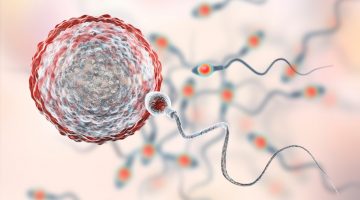Weight and Fertility: How Low BMI and Obesity Affect Fertility

Body mass index (BMI) and weight are used by many clinics as indicators of fertility and also as ways to refuse certain people (both men and women) treatment.
At CNY Fertility, we believe denying someone treatment based on their BMI is both discriminatory and unjust. Some research does exist which shows that women with extremely low or high BMI may have a lower chance of getting pregnant both naturally and through fertility treatment, but the data isn’t absolute. At no BMI does a woman’s chance of getting pregnant equal zero.
In addition, other factors like smoking, consuming alcohol, and even stress are known to impact fertility negatively. Still, they are never used to disqualify patients from treatment, nor should they be!
At CNY Fertility, we believe in educating and fully informing our patients as to the associated risks and their chances of achieving pregnancy instead of using restrictions to turn patients away.
This article will review the available research behind BMI and its influence on getting pregnant naturally and through fertility treatments to provide you with the information you need to have an informed conversation with your fertility specialist.
How BMI, Weight, and Obesity May Affect Fertility
Please note, everything in this section is controversial and debated by fertility specialists. While many studies tie BMI and obesity directly to measurable characteristics of fertility, the experts at CNY firmly believe that it is not weight or BMI itself that causes these adverse effects. Rather it is the dietary and other lifestyle behaviors that in the long term often lead to weight issues and also damage fertility.
Fortunately, lifestyle changes have a near-immediate biochemical impact so making simple changes can increase your fertility much quicker than weight is lost.
Female BMI and Fertility
Research indicates that too high or too low of a BMI can negatively impact fertility. If you are obese or your weight and BMI are at one extreme or the other, some fertility clinics may deny you treatment until a “normal,” BMI is achieved; you will never be denied treatment at CNY for any reason, let alone BMI.
An extremely low BMI or obesity is associated with the following symptoms known to affect fertility:
- irregular menstrual cycles
- anovulation
- lower pregnancy rates
- lower fertility treatment success rates
- hormonal imbalances
BMI and Pregnancy Health
In addition to affecting a woman’s ability to get pregnant, extremely low or high BMI can also cause complications during pregnancy.
Women with extremely high BMI or obesity are at a greater risk for the following:
Women with extremely low BMI are at risk for the following:
Male BMI, Obesity and Fertility
Research indicates that men’s fertility is also affected by BMI.
Men who are obese or underweight may experience the following symptoms of infertility:
Female BMI and Getting Pregnant Naturally
The two main ways that BMI affects fertility are via menstrual and ovulatory disorders. Research has shown that the risk of infertility is increased by 27% for women of childberain age who are overweight (BMI 25 – 30) compared to women of normal weight (BMI 18.5-25). Women who are obese (BMI <30), are 78% more likely to experience infertility.
Menstrual and ovulatory disorders can be treated by making daily lifestyle changes like exercising lightly, eating a fertility diet, and taking supplements.
These changes can help to return spontaneous ovulation, improve the odds of conception, and pregnancy rates.
Also, fertility medications like Clomid or Letrozole can be used to encourage ovulation and increase the chances of a successful pregnancy with or without treatments like IUI (commonly known as artificial insemination).
BMI, Weight, Obesity and Fertility Treatment
Recent studies and meta-analyses have displayed that being overweight or obese has adverse effects on fertility treatment success, including ovulation induction and IVF/ICSI treatments.
During treatment, overweight or obese women are more likely to experience a low response to ovarian stimulation medications, reduced oocyte retrieval and poor quality of oocyte and embryos. These factors influence fertility treatment success and help to explain why women with higher BMI experience lower success rates with fertility treatments.
Just because success rates are lower and women with higher BMI may experience more difficulties while getting pregnant naturally or with assisted reproductive treatments, doesn’t mean they should be ineligible for treatment.
Success rates may be lower for women with high BMI, but they are not zero, and far from it! Since research indicates that women with higher BMI or obesity are more likely to experience infertility it makes even less sense to deny them treatment.
Why You Should NEVER Delay Treatment to Lose Weight
Some clinics may deny you treatment until you are at an “ideal weight,” whatever that means.
However, statistics indicate that losing significant amounts of weight can take multiple years and age significantly impacts fertility, likely much more so than weight.
As women get older, their chances of getting pregnant decrease due to several different factors, mainly decreased the number of eggs (ovarian reserve) and reduced quality of eggs (increased number of chromosomally abnormal eggs).
Anti-Müllerian Hormone (AMH) levels are a strong indicator of a woman’s ovarian reserve. As displayed in the figure below, women’s AMH levels decrease by age:

As mentioned above, as a woman ages the quality of her eggs decreases. Since older women produce more chromosomally abnormal eggs, this results in more chromosomally abnormal embryos which causes the odds of pregnancy to go down and the chances of infertility to increase.

Due to the reasons mentioned above, a woman’s chances of getting pregnant each month decreases with age. As demonstrated in the figure below, her odds of conceiving fall most drastically between the ages of 35 to 40.

As you can see from the figures above, advancing age decreases your chances of having a baby. As such, in most cases, waiting until you fit within a clinic’s strict weight or BMI guidelines to get pregnant doesn’t make sense! So instead, at CNY Fertility, we focus on improving other factors that are known to affect fertility and can usually be treated much faster than losing weight.
What Really Matters – Other Factors Affecting Fertility other than BMI
As mentioned before, weight isn’t the problem. Weight is merely a symptom of a diet and lifestyle that leads to abnormal BMIs. If you make the necessary lifestyle changes, you can drastically improve your odds of a successful pregnancy way before you see any weight change on the scale
Inflammation
Inflammation is extremely common in women with higher BMIs or obesity and is known to impact fertility negatively. Infertility and inflammation are highly associated and numerous infertility diagnoses are intimately related to inflammation including, PCOS, endometriosis, pelvic inflammatory disease, and recurrent pregnancy loss.
Inflammation can also affect fertility treatment outcomes and cause IVF failures. At many fertility clinics, infertility caused by inflammation will be written off as unexplained infertility. At CNY Fertility, our reproductive endocrinologists are experts in reproductive immunology and they focus on how the immune system and inflammation affect fertility. As a result, our team is well equipped to recommend appropriate strategies and simple day-to-day changes that can help to reduce inflammation and improve your chances of getting pregnant.
Polycystic Ovary Syndrome (PCOS)
PCOS is one of the most common causes of infertility and it is the most common cause of anovulatory infertility, affecting 4-18% of reproductive-aged women. Many women don’t know then have PCOS until they seek fertility treatment and high BMI or obesity is fairly common in women with PCOS (40-80% of women with PCOS are obese).
PCOS is also highly associated with above “normal” BMIs. Similarly, the hormonal disturbances that characterize those with PCOS make it very easy to put on weight and very difficult to lose weight.
The exact cause of PCOS is difficult to pinpoint, but Fertility Specialists believe it is the result of a combination of factors including genetics, health, and lifestyle. Since PCOS is so common, it has been heavily researched and several different treatment options are available. As such, getting pregnant with PCOS is very possible with the use of medications to stimulate ovulation in combination with treatments like In-Vitro Fertilization (IVF).
Lifestyle changes like the ones mentioned in the section below can also help to improve PCOS symptoms and natural fertility.
Nutritional Deficiencies
Many women with extremely low or high BMI experience nutritional deficiencies as a result of their diet. Many different nutritional deficiencies are associated with both male and female infertility.
For example, vitamin D deficiency is associated with female fertility problems like PCOS, endometriosis, and uterine fibroids.
For men, vitamin D deficiency is associated with lower sperm production, impaired motility, lower testosterone, and lower overall sperm quality.
Vitamin deficiencies can be corrected through dietary changes that aren’t focused on losing or gaining weight and also by taking fertility supplements.
Improving Health Before Pregnancy
Losing or gaining weight isn’t the only, or even the best way, to improve fertility. As mentioned above, an abnormal weight is actually a symptom, not a disease; treating the underlying conditions that are contributing factors to your low/high BMI is equally if not more important when it comes to increasing your chances of conception.
Check out some strategies to naturally improve your health before or while trying to get pregnant below.
Light exercise (Yoga, Walking, etc.)
The benefits of exercise for fertility and overall health are well documented—exercise results in improved circulation which pushes more nutrient-rich blood to the reproductive organs. Exercise also helps to reduce stress and brings balance to your immune system. The immune system is believed to be one of the chief causes of “unexplained fertility” as it is responsible for causing the body’s inflammatory response to what it perceives as harmful stimuli.
At CNY Fertility, we recommend incorporating low-intensity movement like stretching, walking, and yoga into your daily routine to get your body in motion.
For women, exercise can help to improve menstrual cycle regularity and ovulation.
For men, exercise is associated with higher testosterone levels and better semen parameters.
Dietary Changes and Supplements
Making dietary changes shouldn’t just be about losing or gaining weight, especially when you are trying to get pregnant. Eating a fertility diet can help to decrease inflammation and provide your body with the nutrients it needs to foster and support a healthy pregnancy.
At CNY Fertility, we recommend eating a high fat, moderate protein, and low to no carbohydrate diet, nicknamed the B.E.B.B.I. Diet (Bacon, Eggs, Butter, Beef, and Ice cream made from full-fat heavy cream with little sugar). Fat is the key element of fertility. It provides essential building blocks for our cells and helps synthesize vital reproductive hormones. Dietary fat provides our bodies with energy and essential fatty acids that we can’t produce on our own. Fat also enables our bodies to absorb essential vitamins like A, D, and E, which all increase fertility. The most important benefit of eating fat for fertility is that it helps to reduce inflammation!
Fat has always been blamed for causing obesity, but new research suggests that carbohydrates are to blame. Carbohydrates cause many chronic conditions and elevated blood sugar levels, which lead to advanced glycation and other damaging body responses that cause inflammation. In addition to causing inflammation, large amounts of carbs can also affect reproductive hormone levels.
Some nutrients aren’t easily obtained through diet alone and when you’re trying to get pregnant it is important to ensure sufficient levels of a wide array of nutrients. We recommend taking fertility supplements to support your diet and ensure your body has everything it needs to produce healthy sperm to eggs and to support a healthy pregnancy.
Reducing Stress
Low and high BMI have both been associated with higher levels of stress. Unfortunately, stress can impact fertility and an infertility diagnosis can also increase stress.
Recently, numerous studies have emerged linking a women’s day-to-day stress levels with reduced chances of getting pregnant. [referencesPending link=”Lifestyle factors in people seeking infertility treatment – A review” text=”Lifestyle factors in people seeking infertility treatment – A review”/]
Research indicates that stress also negatively impacts male fertility. Studies have found that stress reduces the production of luteinizing hormone (LH) and testosterone which causes complications in spermatogenesis, resulting in reduced sperm quality.
Light exercise and yoga are two proven ways to reduce levels of cortisol, the stress hormone, in the body. Relaxation techniques like meditation, deep breathing, and practicing mindfulness have also been shown to reduce stress. In extreme cases, your fertility specialist may recommend professional psychological intervention. Numerous studies have found that psychosocial intervention focused on eliminating stress can help to improve psychological outcomes, relationships, and pregnancy rates among infertile couples.
Stopping Smoking
Smoking is known to negatively affect nearly every aspect of one’s health, including fertility. For women, smoking decreases ovarian reserve, causes premature ovarian aging, and can have severe effects on the health and development of your baby. The good news is that research shows women can significantly improve their chances of getting pregnant by quitting smoking one year prior to trying to conceive.
In a large study of 1,700 men, researchers measured the effects of smoking on men’s sperm density, count, and motility.
| Sperm Density | Sperm Count | Sperm Motility |
|---|---|---|
| -15.3% | -17.5% | -16.6% |
As displayed above, smokers had significantly worse results across all three categories when compared to non-smokers. We highly recommend stopping smoking to increase your fertility.
Reducing Inflammation
Eat a High Fat Low Carb Diet: As mentioned above, eating a high fat and low carbohydrate diet is a great way to reduce inflammation, as is incorporating light exercise into your daily routine. In addition to providing your body with the nutrients it needs to support pregnancy, many of the vitamins and minerals found in fertility supplements are antioxidants that help to reduce harmful reactive oxygen species that cause inflammation.
Omega 3 Fatty Acids have also been shown to greatly reduce inflammation and are another recommended strategy for increasing fat intake and reducing inflammation.
Acupuncture and Massage: Two of the best ways to reduce inflammation specific to fertility are through acupuncture and fertility massage.
In addition to reducing inflammation, acupuncture provides numerous other benefits for fertility like increasing blood flow, reducing stress, normalizing hormone production, and more . Research shows that acupuncture has a positive effect and no adverse effects on pregnancy outcomes. Fertility massages provide similar benefits for improving fertility and also help to prepare the body for pregnancy.
Reducing Alcohol Consumption: One final way to decrease inflammation and improve your fertility is reducing alcohol consumption. Similar to smoking, alcohol and fertility aren’t a great mix.
The occasional beer or glass of wine here and there may not hurt, but as consumption increases research shows that fertility declines. In addition, alcohol can cause hormonal imbalances, ovulatory issues, decreased sexual function and impaired semen quality.
Heavy alcohol intake is also highly associated with chronic inflammation it impairs the body’s ability to regulate inflammation.
Ethical Issues of Denying Treatment Based on Weight and BMI
At CNY Fertility, we pride ourselves on making sure that everyone has access to the high-quality and affordable fertility care they need to grow their families.
We strongly feel that denying anyone treatment based on their weight or BMI is discriminatory and unjudicial. Some clinics may deny patients treatment based on BMI because as weight increases fertility success rates go down. But at no point do those success rates equal zero! Putting in strict weight or BMI guidelines may be an efficient way to artificially boost your success rates, but it isn’t ethically right.
Patients with high levels of stress have a statistically lower chance of getting pregnant, should we deny them treatment?
What about patients over the age of 35, or patients who admit to drinking a few glasses of wine a week?
BMI (especially high) is associated with bias among many healthcare professionals across all fields. We feel that refusing to accept or treat patients that are within the scope of safe practice solely based on an arbitrary BMI restriction is simply wrong.
Final Words on BMI and Fertility
Body mass index (BMI) should never be used as the sole reason to deny patients treatment, especially if they are medically healthy enough to carry a baby. High and low BMI patients may be at a greater risk for infertility, but so are many other populations of people who aren’t discriminated against. BMI just happens to be easily observable, as such, some clinics may jump to harsh conclusions before giving patients a fair and complete workup.
As mentioned in this article, many other factors contribute to fertility than weight alone. When we focus on improving those factors, the chances of getting pregnant increase greatly.
If you have experienced any sort of bias in your fertility care or have been denied care entirely, we encourage you to fill out our online consultation form and speak with one of our fertility care providers about your options. We would love to assist you on your fertility journey.




